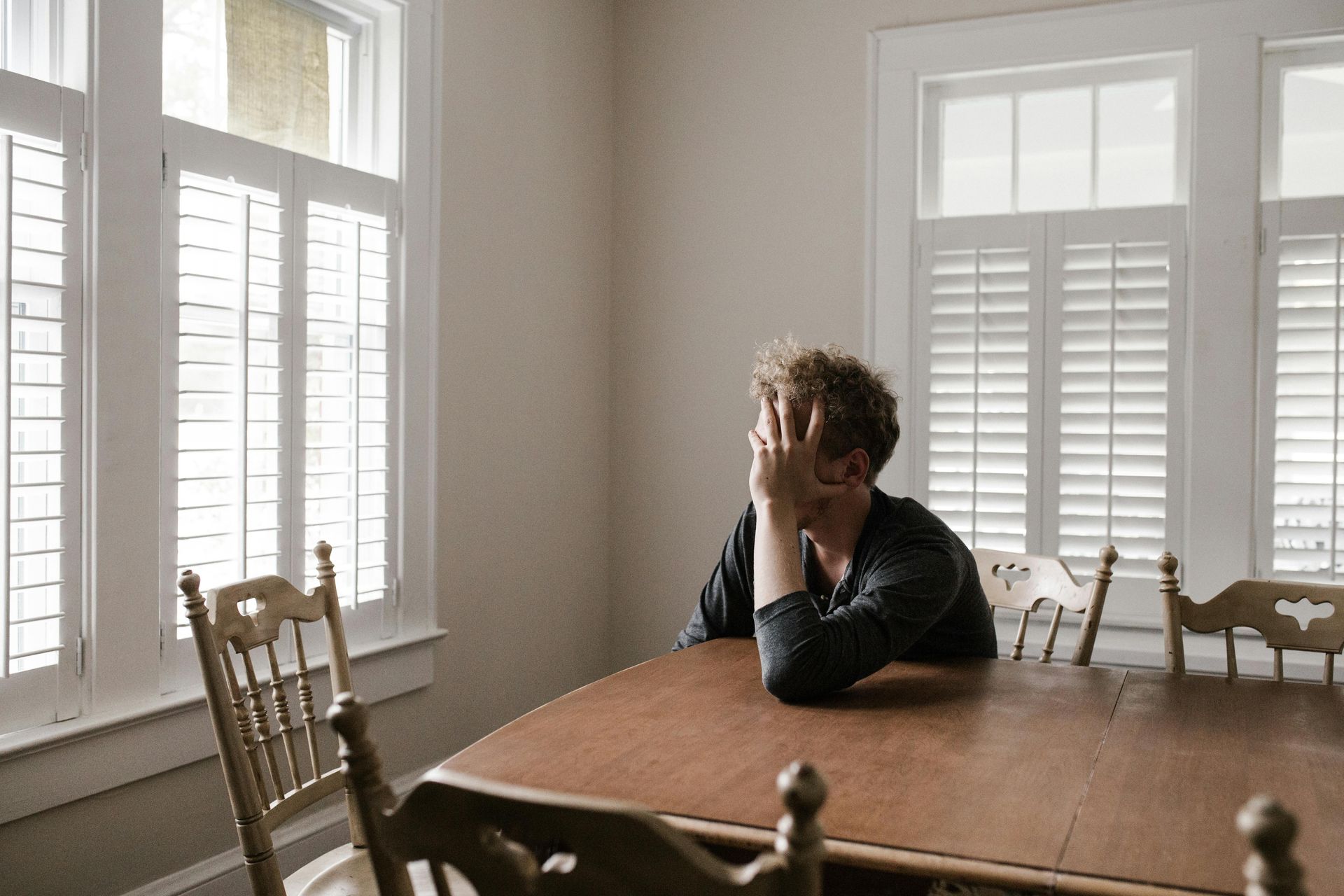Why Therapy Is a Good Way to Treat Depression
Finding Hope and Healing Through Counseling in Twinsburg, Aurora, Solon, and Bainbridge, OH

Depression is one of the most common mental health challenges people face today, yet it is also one of the most misunderstood. Many individuals suffering from depression feel isolated, overwhelmed, and unsure of where to turn. While medication can be an important part of treatment for some, therapy has consistently proven to be one of the most effective and lasting ways to address depression. At Aurora Counseling and Consulting, we work with clients in Twinsburg, Aurora, Solon, and Bainbridge, OH to help them navigate depression, uncover its root causes, and build tools for long-term emotional well-being.
In this post, we’ll explore why therapy is such a powerful option for treating depression, how different therapeutic approaches can help, and what you can expect when working with a trained therapist.
Understanding Depression
Depression is more than just feeling sad—it’s a serious condition that affects how people think, feel, and function in their daily lives. Symptoms can range from persistent sadness and fatigue to difficulty concentrating, changes in appetite or sleep, and loss of interest in activities once enjoyed. Left untreated, depression can have a major impact on relationships, careers, and physical health.
Communities like Twinsburg, Aurora, Solon, and Bainbridge are full of people balancing busy family lives, work responsibilities, and community commitments. When depression strikes, it can feel impossible to manage all of these demands. Therapy offers a safe, confidential space to slow down, focus on yourself, and develop strategies for healing.
Why Therapy Works for Depression
1. Therapy Treats the Root Cause, Not Just Symptoms
While medication can help regulate brain chemistry and reduce certain symptoms, therapy goes deeper. Counseling helps individuals explore the underlying causes of their depression—whether those are unresolved trauma, stress, negative thought patterns, or life transitions. Addressing these root issues makes long-term recovery more sustainable.
2. Therapy Provides Personalized Support
Every person’s experience with depression is unique. A therapist tailors treatment to the individual’s needs, life experiences, and goals. For residents in Aurora or Solon, for example, therapy may focus on managing the stress of demanding careers, while clients in Twinsburg or Bainbridge may be navigating family changes or grief. Personalized therapy means you’re not alone in your journey—your counselor is right there with you.
3. Therapy Offers Tools for Everyday Life
Therapy isn’t just about talking—it’s about learning practical skills to manage depression. Cognitive Behavioral Therapy (CBT), for instance, helps individuals reframe negative thought patterns, while mindfulness techniques can reduce stress and increase resilience. These tools empower clients to take control of their mental health both inside and outside the therapy office.
4. Therapy Builds Lasting Change
Unlike quick fixes, therapy creates lasting progress. Through regular sessions, clients gain insight into their behaviors, learn coping mechanisms, and improve relationships. This holistic approach supports long-term recovery and lowers the chances of depression returning.
Different Types of Therapy for Depression
At Aurora Counseling and Consulting, we use evidence-based methods that have been proven effective for depression:
- Cognitive Behavioral Therapy (CBT): Helps clients identify and change negative thinking patterns.
- Dialectical Behavior Therapy (DBT): Focuses on building emotional regulation and coping skills.
- Interpersonal Therapy (IPT): Addresses relationship struggles and life transitions.
- Mindfulness-Based Therapy: Incorporates meditation and stress-reduction practices.
We create customized plans for each client in Twinsburg, Aurora, Solon, and Bainbridge, ensuring that the therapy approach matches their unique needs and goals.
What to Expect in Therapy
For many people, starting therapy is the hardest step. It’s normal to feel nervous about opening up to a therapist, but the process is designed to be supportive and collaborative. Here’s what clients can expect:
- Initial Assessment: The first session often involves discussing your history, current struggles, and goals.
- Personalized Plan: Together, you and your therapist will create a plan that addresses your needs.
- Ongoing Sessions: You’ll meet regularly to explore your thoughts, feelings, and progress.
- Practical Homework: Many therapists assign exercises to practice skills outside of sessions.
The goal is not just to reduce depression symptoms but to help clients live more fulfilling and balanced lives.
The Local Connection: Twinsburg, Aurora, Solon & Bainbridge
Mental health resources can feel more meaningful when they’re close to home. At Aurora Counseling and Consulting, we’re proud to serve clients in Twinsburg, Aurora, Solon, and Bainbridge, OH. These are vibrant communities full of families, professionals, and individuals of all ages—each with their own unique challenges and strengths.
Whether you’re a busy professional in Solon, a parent in Aurora, a student in Twinsburg, or someone enjoying the quieter lifestyle of Bainbridge, depression can touch any life. Local therapy means having support that understands the cultural and community factors unique to Northeast Ohio.
Frequently Asked Questions About Therapy for Depression
1. How do I know if I need therapy for depression?
If feelings of sadness, hopelessness, or lack of motivation persist for more than two weeks and interfere with daily life, it may be time to seek professional help.
2. Can therapy work without medication?
Yes. Many people successfully treat depression through therapy alone, though some benefit from a combination of therapy and medication. A therapist can help you explore the best approach for your situation.
3. How long does therapy for depression take?
The length of therapy varies depending on the individual. Some people notice improvements in a few months, while others benefit from longer-term support.
4. What’s the difference between talking to a therapist and talking to a friend?
Friends can provide support, but therapists are trained professionals who use evidence-based techniques to help clients address the root causes of depression and build lasting strategies.
5. Is therapy confidential?
Yes. Therapists are legally and ethically bound to keep your information private, with very limited exceptions related to safety concerns.
6. Will therapy really make a difference in my life?
Most clients report noticeable improvements in mood, relationships, and coping skills after committing to therapy. The process takes effort, but it can be life-changing.
7. How do I start therapy in Twinsburg, Aurora, Solon, or Bainbridge?
Getting started is simple. Contact Aurora Counseling and Consulting to schedule an initial appointment. We’ll guide you through the process step by step.
Taking the First Step Toward Healing
Depression can make life feel overwhelming, but you don’t have to face it alone. Therapy provides a safe, supportive space to understand your struggles, develop coping skills, and create a brighter future. At Aurora Counseling and Consulting, we are dedicated to helping individuals and families in Twinsburg, Aurora, Solon, and Bainbridge, OH find hope and healing.
If you or someone you love is struggling with depression, reach out today to schedule an appointment. The first step toward recovery may feel difficult, but it can also be the most important step you’ll ever take.




